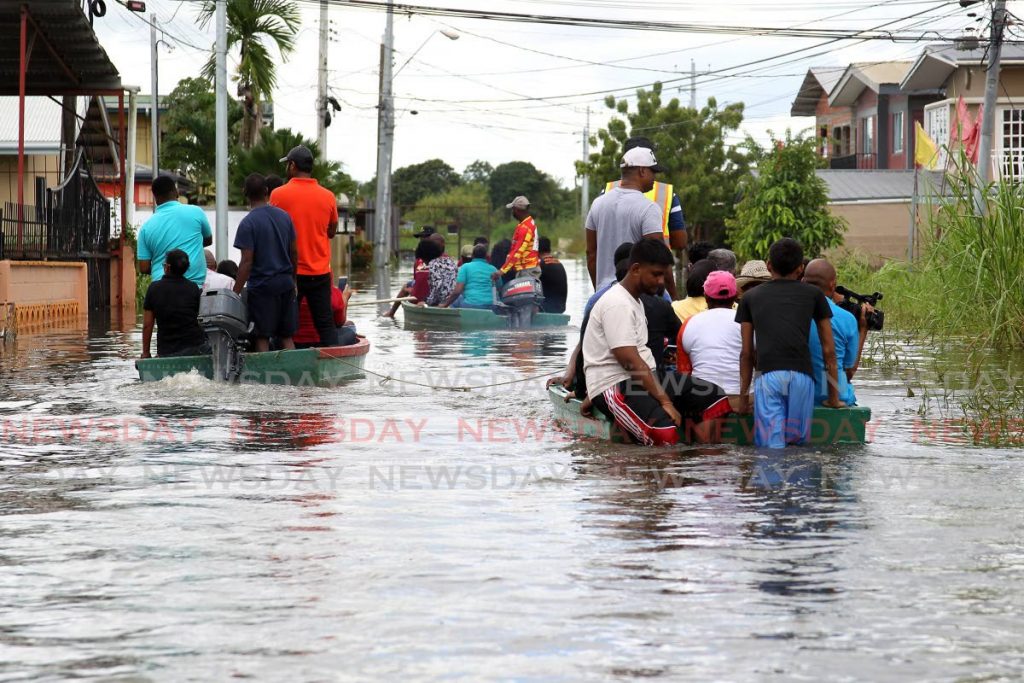A perfect storm

The fifth month of 2020 is already here and in the face of the 2020 Atlantic Hurricane Season, come June 1, The Emergency Management Association of TT (EMATT) is asking, are we in the Caribbean, CDEMA member states in particular, heading into a perfect storm?
Consider the following. Firstly, like the rest of the world, we are still trying to get a grip on the pandemic brought on by the novel coronavirus. Secondly, the impact of this pandemic on life in general has only served to worsen a weak world economic situation. Thirdly, the outlook for the 2020 Atlantic Hurricane Season suggests that it will be yet another above-average season.
Here in TT the hurricane season falls within our rainy season. While rainfall is forecast by our Meteorological Services Division to be less than the annual average, it takes only a single episode of heavy rainfall to produce the kind of flooding situation that requires people to be placed in shelters. We have already seen how difficult it is to establish and maintain appropriate physical distancing between people seeking social assistance of one kind or another. Achieving appropriate distancing while conducting response operations (sheltering, for example), will present similar, if not greater, challenges. Even without such a flooding event (or, for that matter, any hazard event that requires the intervention of first responders), we will be entering our rainy/hurricane season with our first responders already heavily taxed by the challenges presented by the coronavirus outbreak.
The 2020 hurricane season promises to add to the challenges. Echoing a position held by many weather experts, Dan Kottlowski, AccuWeather’s top hurricane expert, opined that it will be an above-normal season. He and his team predict that the season will likely see 14-18 tropical storms. Of those storms, seven to nine are forecast to become hurricanes; and two to four are predicted to strengthen into major hurricanes. In contrast, he noted that “On a normal year, we have around 12 storms, six hurricanes and roughly three major hurricanes.”
On the economic front, TT entered its 2019/2020 financial year with a predicted significant shortfall in revenue. Reduction in local oil and gas production, coupled with a reduction in world oil and gas prices served only to worsen our financial situation. Now add to that the economic impact of the covid19 pandemic.
What we are facing is a hurricane season in which the need for resources (for both first responders and victims of emergencies) is likely to be greater, the financial situation is worse than anticipated, and the challenges of emergency response activities will be more complex. In short, we are likely to be facing a situation where, as a society, we will be required to do more (in so many ways) with a whole lot less. Not unexpectedly, there will be new learnings from this year’s hurricane season experiences. However, in a covid19 pandemic scenario, such lessons are likely to be ‘out of the box.”
While EMATT does not have any prescriptions to offer to deal with the anticipated challenges, the situation is nonetheless regarded as one that highlights the urgent and inescapable need for a positive change in our risk culture (including disaster risk) as we seek to achieve sustainable national development. One immediately needed change is that of improving our overall resilience while decreasing our level of vulnerability to disasters (of all kinds). lt is precisely this risk culture change that EMATT seeks to champion.

Comments
"A perfect storm"